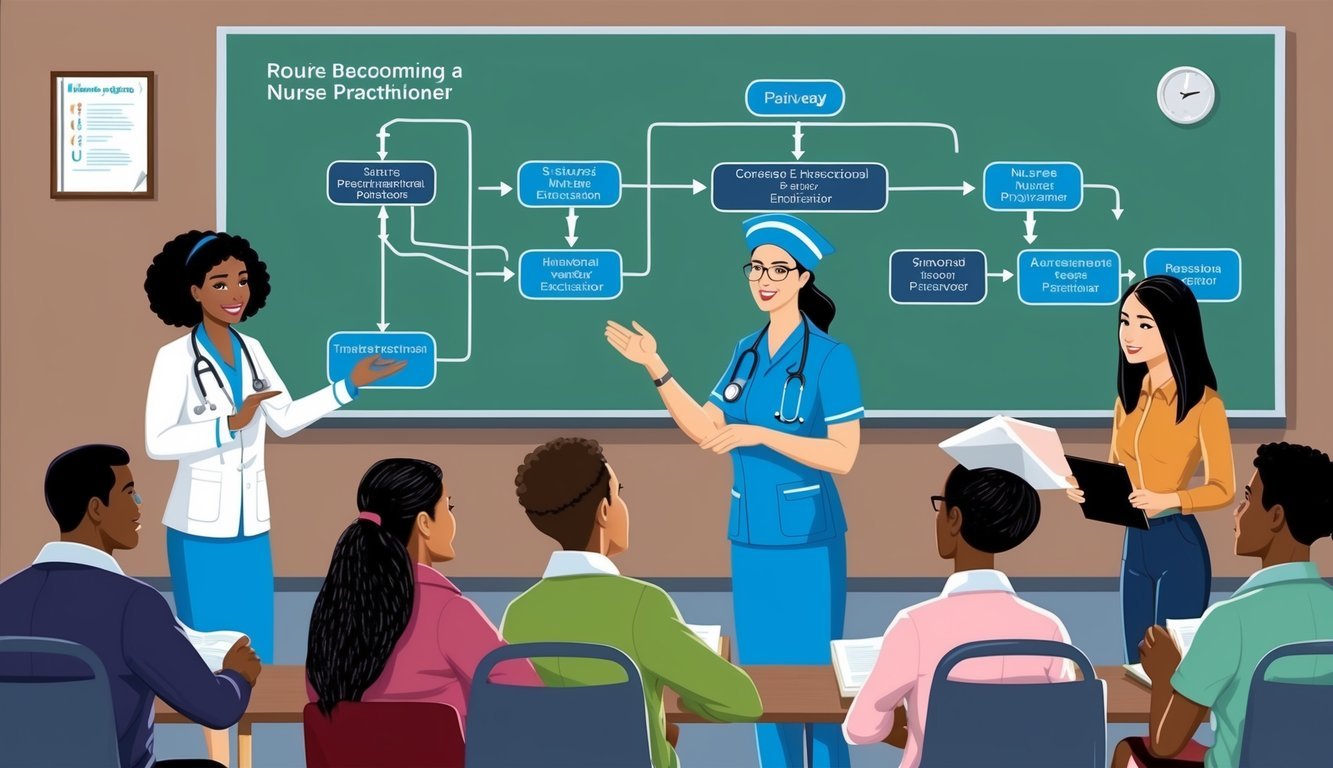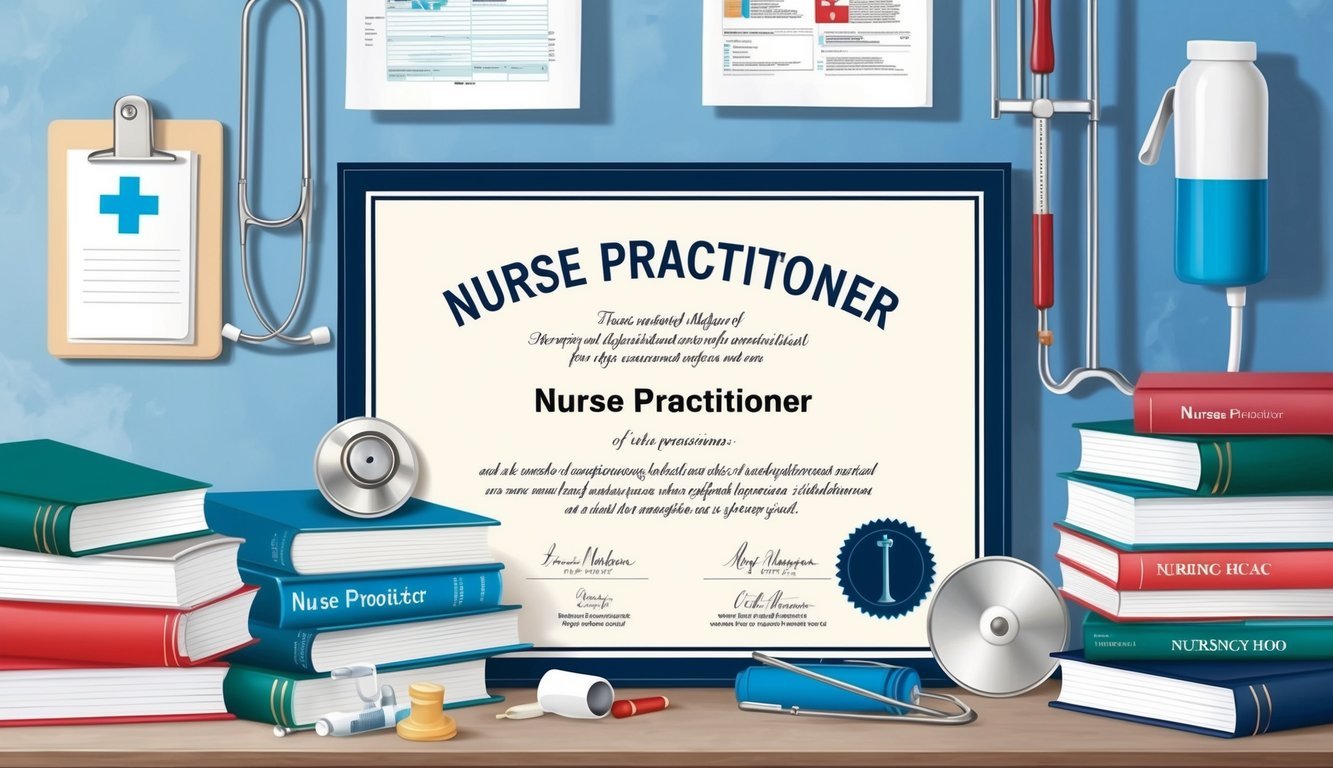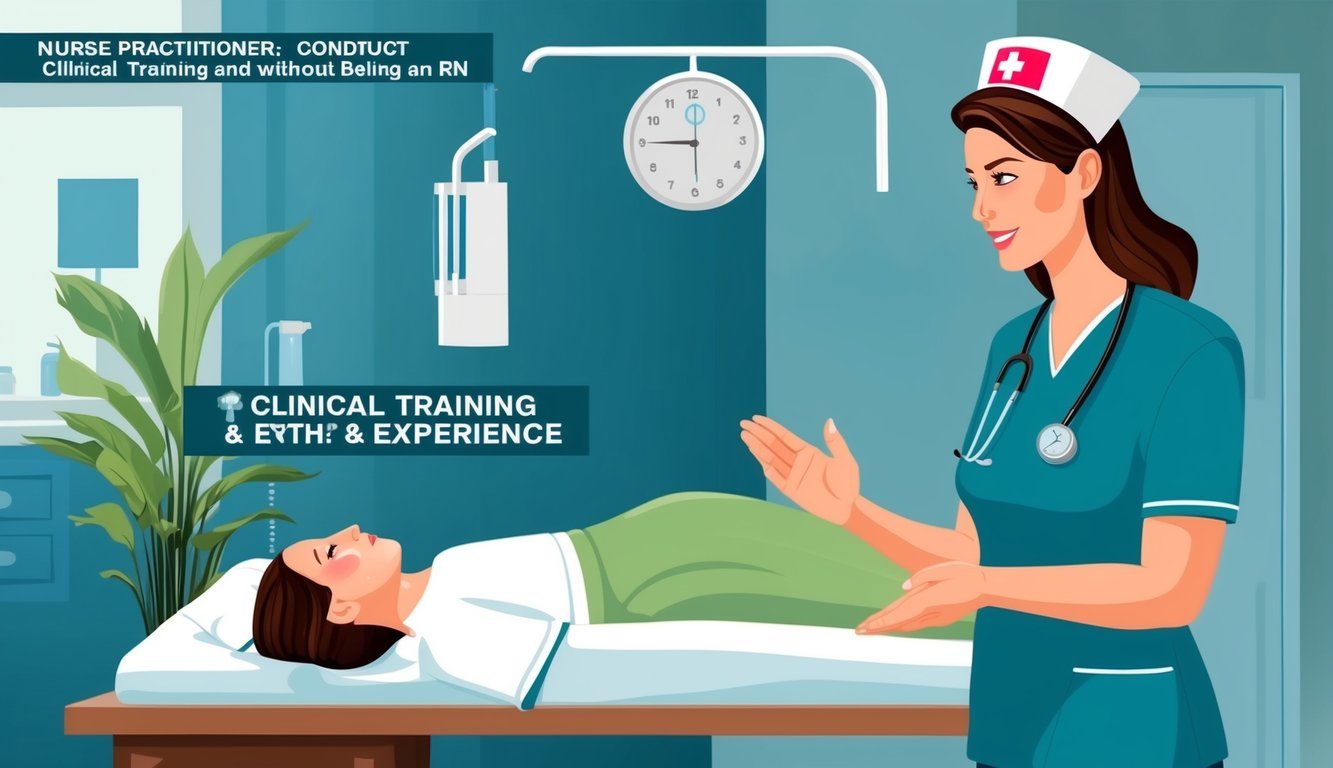For those contemplating a career in healthcare, the pathway to becoming a Nurse Practitioner (NP) can raise many questions.
It is indeed possible to become a nurse practitioner without first being a registered nurse (RN).
However, the route requires careful planning and commitment to meeting specific educational and licensure requirements.
This possibility opens doors for individuals with diverse academic backgrounds who aspire to take on advanced clinical roles.
Many programs exist that allow you to transition from a non-nursing background to a master’s degree in nursing, enabling you to pursue a career as an NP.
You will need to complete certain prerequisites and demonstrate competency through rigorous training.
Understanding the steps involved can significantly enhance your chances of success in this competitive field.
The journey may include obtaining a nursing degree, passing the NCLEX, and acquiring the necessary clinical experience.
With dedication and the right guidance, you can navigate this path effectively and achieve your goal of becoming a Nurse Practitioner.
Explore more about the requirements and options available to you through resources like NurseJournal and Nursing Process.
Understanding the Role of a Nurse Practitioner
A Nurse Practitioner (NP) holds a vital position in healthcare, offering advanced patient care and specialized services.
You will find that NPs possess distinct responsibilities compared to Registered Nurses (RNs), allowing them to take on more autonomous roles in various clinical settings.
Scope of Practice and Responsibilities
The scope of practice for a Nurse Practitioner is extensive.
NPs are trained to assess patients, make diagnoses, interpret diagnostic tests, and develop treatment plans.
They can manage overall patient care and specialize in areas such as Family Health, Women’s Health, or Acute Care.
Key responsibilities include:
- Performing physical examinations
- Ordering and interpreting laboratory tests
- Prescribing medication
- Providing health education and counseling
The ability to prescribe medication allows NPs to manage chronic conditions and offer comprehensive care.
Various NP specialties, such as Pediatric Nurse Practitioner and Adult-Gerontology Acute Care NP, cater to specific populations, ensuring tailored healthcare services.
Comparing NP and RN Roles
While both Nurse Practitioners and Registered Nurses play essential roles in patient care, their functions differ significantly.
RNs typically provide bedside care, focusing on patient monitoring and assistance with daily activities.
In contrast, NPs have a broader clinical focus:
| Role | Nurse Practitioner (NP) | Registered Nurse (RN) |
|---|---|---|
| Level of Education | Master’s or Doctoral degree | Associate or Bachelor’s degree |
| Autonomy | High (can assess, diagnose, treat) | Limited (primarily act under supervision) |
| Prescriptive Authority | Yes | No |
| Specialization Options | Wide range (e.g., FNP, PMHNP) | Limited |
Your decision to pursue a career as an NP may depend on your interest in advanced practice, as well as the expanded responsibilities associated with this role.
For further details on becoming a Nurse Practitioner, visit resources like the American Association of Nurse Practitioners.
Educational Pathways in Nursing

There are defined pathways to advance in nursing, particularly for those aspiring to become a Nurse Practitioner (NP).
Understanding the routes available can help you make informed decisions about your educational journey.
From RN to NP: Traditional Path
To become a Nurse Practitioner, the traditional pathway typically begins with becoming a Registered Nurse (RN).
You can earn your credentials through a Bachelor of Science in Nursing (BSN) or an Associate Degree in Nursing (ADN).
Once you are licensed as an RN, the next step is pursuing a Master of Science in Nursing (MSN) or a Doctor of Nursing Practice (DNP).
Nursing education in these programs focuses on advanced clinical skills and decision-making.
Traditional MSN programs require a BSN, while some RN to MSN programs allow you to bridge your education through a combination of undergraduate and graduate studies.
These routes often lead to greater job opportunities and a higher salary.
Additionally, some schools offer options like Accelerated Nurse Practitioner Programs that allow you to complete your training more quickly.
Alternative Routes: Non-Nursing Bachelor’s to NP
For individuals holding a non-nursing bachelor’s degree, there are alternative pathways to becoming a Nurse Practitioner.
One viable option is the Direct-Entry MSN Program.
These programs are designed for those who already have a bachelor’s degree in another field.
In a Direct-Entry program, you typically complete nursing coursework while simultaneously preparing for advanced practice roles.
This pathway usually lasts around 2-3 years, significantly condensing the educational timeline compared to traditional RN paths.
Upon completion, you can sit for the licensing exam to become an RN and then advance to NP roles.
Online Nurse Practitioner Programs are also available, which offer flexibility to those balancing other obligations.
Many programs may require prerequisite courses, so it is essential to check admission criteria closely.
Consider options that fit your existing schedule and goals for a streamlined transition into the nursing profession.
Licensure and Certification

Understanding the requirements for licensure and certification is crucial for anyone considering a path to becoming a nurse practitioner (NP).
This section outlines the certification process for nurse practitioners and the specific state licensure requirements you will need to fulfill.
Certification for Nurse Practitioners
To become a certified nurse practitioner, you must complete a graduate-level program in nursing and pass a national certification examination.
The American Nurses Credentialing Center (ANCC) is one of the primary organizations that administers these certification exams.
Here are the key steps for certification:
- Complete an NP Program: Obtain a Master’s or Doctorate in Nursing.
- Clinical Hours: Fulfill required clinical hours as mandated by your program.
- Pass Certification Exam: Take the National Certification Exam specific to your NP specialty area.
You can explore testing details and resources at the [ANCC website](https://www.n nursingworld.org/ncvo).
An active certification is essential for practicing as an NP and assures employers of your qualifications and skills.
State Licensure Requirements
State licensure is a legal requirement to practice as a nurse practitioner.
Each state has its own regulations governing NP practice, often differing significantly.
Key factors include:
- RN License: Most states require you to hold an active and unencumbered Registered Nurse (RN) license.
- APRN Licensure: After obtaining certification, you apply for Advanced Practice Registered Nurse (APRN) licensure in your state.
- Continuing Education: Some states mandate ongoing continuing education to maintain your license.
It’s important to check specific state requirements as regulations vary.
Make sure you are aware of these differences to ensure compliance with state laws and optimal practice as an NP.
Clinical Training and Experience

Clinical training is a crucial component of becoming a nurse practitioner, especially for those entering the field without prior nursing experience.
This training combines supervised clinical rotations and practical experience, providing a foundation for advanced practice.
The Importance of Clinical Rotations
Clinical rotations are an essential part of your training as a nurse practitioner.
They provide hands-on experience in various healthcare settings, allowing you to apply theoretical knowledge in real patient care situations.
During these rotations, you will work under the guidance of experienced practitioners.
This mentorship is vital for developing your clinical skills and decision-making abilities.
Typically, you will rotate through specialties such as pediatrics, geriatrics, primary care, and emergency medicine.
Most programs require a minimum number of clinical hours, often ranging from 500 to 1,000 hours.
Meeting this requirement will ensure you are prepared for the demands of an Advanced Practice Nurse role while understanding the nuances of patient care in different contexts.
Transition from Student to Advanced Practice
Transitioning from a student to an advanced practice nurse (APN) involves significant changes in responsibilities and expectations.
In your clinical training, you will start to build confidence in your assessment and diagnostic skills.
You will learn to manage patient care independently, requiring you to engage in critical thinking and effective communication.
Your previous clinical experience will facilitate this transition, enabling you to build rapport with patients and collaborate with healthcare teams.
Many programs offer specific training on the role of NPs in healthcare, preparing you for the ongoing responsibilities of patient assessment and management.
This transitional phase is where you hone your abilities to provide comprehensive care and guide treatment plans, ultimately shaping your path as an NP.
Career Opportunities and Outlook

The career opportunities for those transitioning to a nurse practitioner (NP) role without traditional RN experience are promising.
The demand for NPs is rising, presenting a range of specialties and a favorable job outlook.
Understanding potential earnings and specialization options is crucial for navigating your career path.
Job Market and Earnings
The job market for nurse practitioners is projected to grow significantly.
According to the U.S. Bureau of Labor Statistics, the employment of NPs is expected to rise by 45% from 2022 to 2032, much faster than the average for other occupations.
Here’s a brief overview of the median annual salaries for various NP roles:
| Specialty | Median Annual Salary |
|---|---|
| Family Nurse Practitioner (FNP) | $128,490 |
| Pediatric Nurse Practitioner (PNP) | $135,180 |
| Psychiatric Mental Health NP | $131,200 |
| Gerontology Nurse Practitioner (GNP) | $125,660 |
| Neonatal Nurse Practitioner (NNP) | $145,620 |
With excellent job security and competitive pay, pursuing an NP role can be a highly rewarding career choice.
Specialties and Advanced Opportunities
As you consider a career as a nurse practitioner, you’ll find numerous specialties available.
Each specialty may require additional training, but they all offer unique opportunities and patient interactions.
Key NP specialties include:
- Family Nurse Practitioner: Provides comprehensive patient care across all ages.
- Pediatric Nurse Practitioner: Focuses on the health of children from infancy through adolescence.
- Psychiatric Mental Health NP: Addresses mental health issues, providing therapy and medication management.
- Neonatal Nurse Practitioner: Cares for critically ill newborns, often in intensive care settings.
- Gerontology Nurse Practitioner: Specializes in the health care of older adults.
These specialties not only enhance your expertise, but they also increase your marketability and earning potential in the healthcare field.
For more information, visit the Bureau of Labor Statistics.

